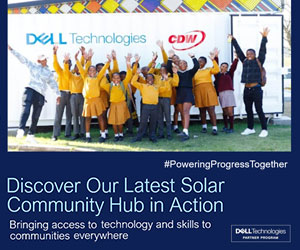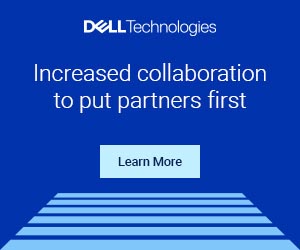As an industry leader, Dell Technologies is in a unique position to tap into the collective power of its technology innovation, talented team members, and impressive customer roster to build a brighter, more sustainable future.
It’s this thinking that serves as the foundation for the company’s “Progress Made Real” campaign — a social impact plan that was created with the goal of creating a positive and lasting impact on humankind and the planet by 2030 and beyond.
There are four key pillars to the company’s “Progress Made Real” efforts: Advancing Sustainability, Cultivating Inclusion, Transforming Lives, and Upholding Ethics and Privacy. This blog series will focus on each one of these pillars.
Part 1: Advancing Sustainability
At Dell, advancing sustainability is at the heart of everything they do. Dell believes that it has a responsibility to protect and enrich the planet together with its customers, suppliers, and communities. As such, the company embeds sustainability and ethical practices into all that it does, holding itself accountable for its actions while driving improvements wherever and whenever possible.
The following are some of the major goals Dell has taken on to advance sustainability.
Accelerate the circular economy
By 2030, the global population will grow by nearly a billion people. With this growth, humanity is using more natural resources than the earth can regenerate. But there is a choice: Dell’s circular design approach aims to eliminate the concept of waste by continually reusing resources.
Protect the planet and inspire customers and partners to do the same
Actions today and over the next decade will have a major influence on how the world mitigates the damage from and adapts to climate change. Dell Technologies has made a strong commitment to reducing its energy consumption and increasing its renewable energy purchases through to its operations. The company is also working with suppliers to improve their efficiency, with the goal being to minimize the energy intensity across the company’s entire product portfolio.
Champion the people who build its products
Dell’s supply chain is vast and complex, involving many people around the world. With the power of this global force, Dell Technologies has the scale and ability to drive responsible manufacturing. So, as a condition of doing business with Dell, the company insists upon ethical practices, respect, and dignity for all who create its products. Dell partners with suppliers to help them develop the necessary insight and capabilities, reinforced by a comprehensive audit program that accelerates and maintains improvements.
Advancing Sustainability Goals
The following is a summary of Dell’s advancing sustainability goals:
• Reach net zero greenhouse gas (GHG) emissions across Scopes 1, 2 and 3 by 2050
• Source 75% of electricity from renewable sources across all Dell Technologies facilities by 2030 — and 100% by 2040
• Reduce the energy intensity of the company’s entire product portfolio by 80% (FY12– FY21)
• Partner with direct material suppliers to meet a science-based greenhouse gas (GHG) emissions reduction target of 60% per unit revenue by 2030
Each year through 2030, Dell will:
• demonstrate continued commitments to provide healthy work environments where people can thrive
• deliver future-ready skills development for workers in its supply chain
• and increase engagement with the people who make its products
Learn more about Dell’s efforts in advancing sustainability:
https://corporate.delltechnologies.com/en-us/social-impact/advancing-sustainability.htm
Next up is part 2 of this series: Cultivating Inclusion.













